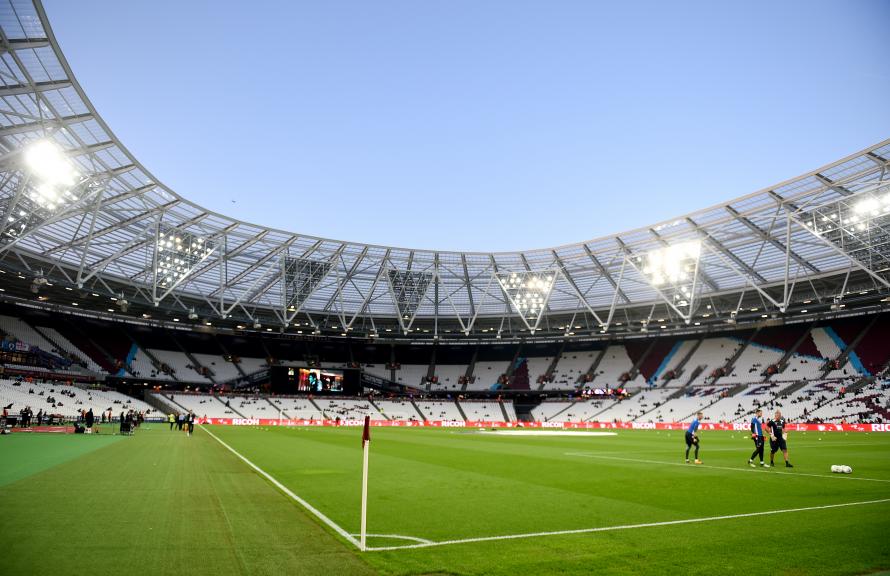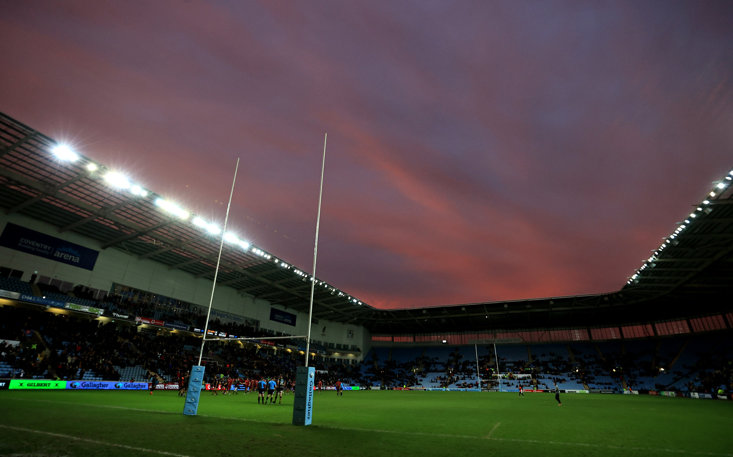In this five-part series, The Sportsman will be exploring one of football's biggest questions. Just why do we love our football clubs? What makes this entity, made up of fleeting players, ever-changing crests and variable fan bases so special to us individually? Having looked in depth at the fans in part one, now we move onto the stadiums.
Football stadiums are strange things. To some, they are just blocks of concrete filled with cheap plastic seats. To others, they are Meccas, cathedrals of the skies and theatres of dreams. They are places that send shivers down your spine and witness your rawest emotions laid out to bare.
But what happens when this holy place that you have visited so often, and become so familiar with, disappears? What about clubs that barely have a home at all? Why can we still feel so connected to our club even if they aren’t playing in their usual surroundings. With the help of fans, The Sportsman explores just how important these arenas are in our footballing love story.
The identity of our football clubs means everything. For some fans, a major part of that identity is walking to the same seat every other weekend. The same route from home. The same familiar faces. The same view of the pitch. Players come and go but, for entire generations, it's all about that one view. Memories are made from that spot. It’s called a hallowed turf for a reason and the history that has been made on that grass cannot ever be wiped away. It’s why we find it so hard to move on.
READ MORE:
- Why do we love our football club - part one: the fans
- Why do we love our football club - part three: the colours and crest
- Why Trent shouldn't go to Qatar
For some clubs, a move away from that familiarity makes personal financial sense, but it still feels gut-wrenching to those long-serving fans. The Boleyn Ground was the home of West Ham United for 112 years and saw the likes of Bobby Moore, Paolo Di Canio and Trevor Brooking grace its turf. But it was more than that. A trip to Upton Park always struck opposition teams with fear. The stands were so close to the playing surface that the fans were almost on top of the pitch, and West Ham’s ‘up and at ‘em’ style was inspired by those on the terraces.
It’s a completely different feeling at the London Stadium. It wasn’t built for them. It isn’t even a football stadium. Instead, the fans sit four and half miles from the centre circle where even the latest range of binoculars would struggle to pick out Andy Carroll. It doesn’t just lack visibility, but heart and history. One fan who has taken the move to heart is former season ticket holder, Katie.
“I’ve never ever felt detachment from the club,” she tells The Sportsman. “West Ham used to be a family, Upton Park had a special feel. Some fans might say it was a dump, but it was our dump and I was proud of it. Arriving at Upton Park station and walking down to the ground it was a special feeling even if there was a real possibility we would get beaten 3-0 by Portsmouth. It didn’t matter. It was my club and nobody could ever take it away from me.

“The day we left Upton Park was one of the most emotional days I have had supporting West Ham. The home I’d grown up with was going to be destroyed, but I kept trying to be positive that this move had to be done for the good of the club and to progress. Now we are playing in an athletics stadium that has no connection with me, and is more of a corporate experience - a poor one at that.
“It may sound dramatic and it probably is, but West Ham has been the one constant in my life and for me to feel complete and utter detachment from the one thing that was always certain – it is just so tough to accept and I feel utterly heartbroken by it.
“I will never stop being a West Ham supporter, but the passion I once felt doesn’t seem like it is about to return anytime soon.”
Stadium moves are always tough to swallow, but they can work out. Tottenham Hotspur left White Hart Lane and, although the old ground held dear memories, their new stadium is a major upgrade. Yet even though they boast one of the finest arenas in the world, some fans will still pine for the days of the Shelf Side.
Brentford left Griffin Park against the backdrop of fan lockouts due to Covid-19 but still earned a place in the Premier League in their first season at the Brentford Community Stadium. For some, that club is unrecognisable from the one which battled it out in the lower tiers in front of those old-school wooden seats. There’s nothing wrong with their new ground in particular but it is just another seismic change of a club, along with the shiny new crest as the Bees strive to make it in the big time.
But these are all moves out of a desire to improve. What about when a club moves away from its home city due to necessity. How does that impact the feeling that fans have around their hometown club? Coventry City are the prime example of this in recent years having groundshared with Northampton Town and Birmingham City, before playing a home cup tie in Burton this season.

Now back at the Coventry Building Society Arena, a stadium now owned by rugby union side Wasps, how do these regular moves away impact how City fans feel about their ‘home’ ground?
“Given the various moves, it feels a lot like rented accommodation,” Coventry blogger Dom Jerams tells The Sportsman. “There is a familiar feeling about it and it is home in the sense that there is nowhere else that evokes a more spiritual feeling of belonging, but it feels like a place I have to be prepared to leave at any given time. There are great memories there but it doesn’t feel like a place especially steeped in Coventry City.”
However, having travelled to see the Sky Blues play at Northampton and Birmingham, Dom believes that the connection between himself and the club actually grew, rather than diminished as many would expect.
“I think, if anything, the stadium moves have increased the sense of bond - at least for me. Having a fixed home stadium engenders a sense of permanence to a football club, having that taken away has shown how fragile football clubs’ existences really are. For me, that is all the more reason to try and take it in and appreciate the club while they are there, because it might not always be.”
So if you can travel all over the country for home matches, watching different players play in strange colours, and still feel some connection to what you are witnessing on the pitch - what makes a football club?
“The main thing for me is that line of continuity from past to present,” Dom concludes. “You could probably strip a lot back about what is essentially Coventry City, but as long as I could see how that has evolved from the past to the present, it would still feel like the football club to me.”
For clubs which have a historical home such as Old Trafford or Villa Park, the stadium feels like an irreplaceable part of the football club. For some West Ham fans, the loss of the Upton Park experience has been impossible to get over. But not every club gets to enjoy the familiarity of home. Stadia remain an immeasurable pillar of the sport that should never be overlooked.